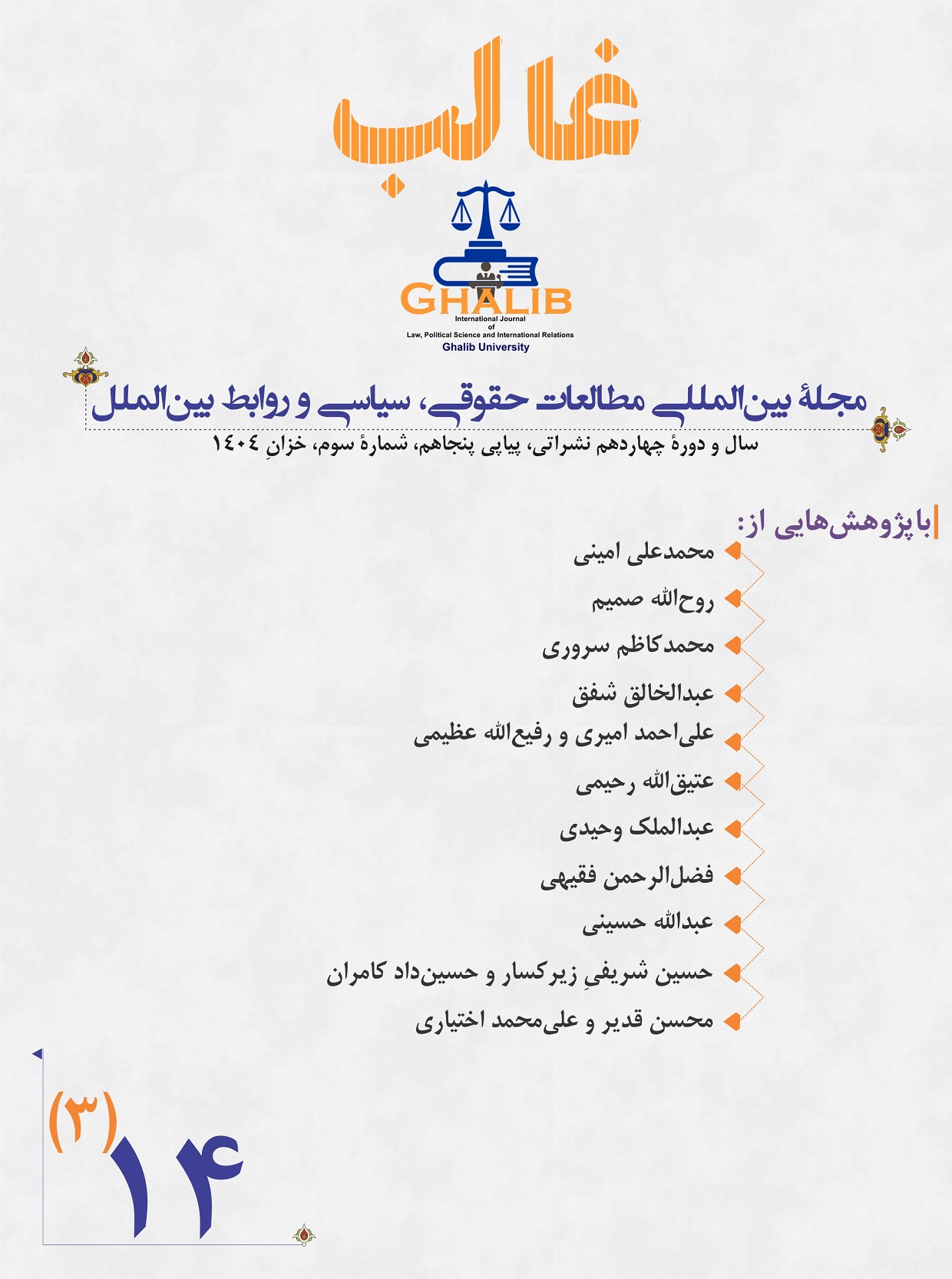Think Tanks and the Pathology of Their Performance in Afghanistan
(2004-2024)
DOI:
https://doi.org/10.58342/ghalibqj.V.14.I.3.12Keywords:
Afghanistan, Decision-making, Pathology, Policy-making, Think TanksAbstract
Think tanks are institutions and organizations engaged in research, analysis, policy-making, planning, foresight, and future studies in the fields of humanities, social sciences, economics, politics, and even military affairs. Although perspectives on the role of think tanks vary, they primarily focus on identifying problems, prioritizing major programs, conducting research and analysis, presenting new ideas, advising decision-makers, and shaping as well as influencing public opinion. The presence and activities of these institutions in Afghanistan—together with the limited impact of their achievements over the past twenty years—make the need for pathological research and performance assessment more pressing than ever. The main purpose of this study is to identify the functional problems and challenges faced by think tanks in Afghanistan and to provide practical solutions to address them. The central research question is: What have been the functional shortcomings of think tanks in Afghanistan over the past twenty years? The research method is qualitative, with data collected through library research and field interviews. This study is applied in its objective and analytical-descriptive in nature. The findings indicate that domestic think tanks, whether governmental or non-governmental, have faced challenges such as staff and capacity shortages, weak access to information, lack of financial independence, fragile scientific foundations, unstable organizational structures, absence of long-term programs, limited government support, lack of markets for their outputs, dependence on foreign aid, insufficient public trust, and a generally weak culture of utilizing these institutions.
References
Afghanistan Institute for Strategic Studies. (2014). Annual report 2014. Kabul: AISS.]In Persian[
Afghanistan Research and Evaluation Unit. (2015). AREU among top 10 think tanks in Central Asia. Retrieved from https://areu.org.af]In Persian[
Afghanistan Women’s Think Tank. (2016). About us. Retrieved from https://afwt.org
Asan Institute for Policy Studies. (2015). Global Go To Think Tank Index Report. Seoul: Asan.
Asian Development Bank Institute. (2020). Annual report 2020. Tokyo: ADBI.
Ayubi, Yashar. (2020). Think Tanks: The Contemporary Necessity for Decision-Making Centers. Tehran: SAMT.]In Persian[
Boucher, Stéphan, & Rouvroy, Martin. (2008). Think Tanks(Seyed Hamid Raziei, Trans.). Tehran: Ministry of Foreign Affairs.]In Persian[
Center for China and Globalization. (2019). Annual report 2019. Beijing: CCG.
Fischer et all. (2007). Handbook of public policy analysis: theory, politics, and methods. Taylor & Francis Group
Fraussen and Halpin. (2017). Think tanks and strategic policymaking: the contribution of think tanks to policy advisory systems. ResearchGate.
Global Institute for Tomorrow. (2016). About GIFT. Retrieved from https://global-inst.com
Gomart, Thomas. (2019). What is a Think Tank? A French Perspective. French Institute of International Relations
Harbesch, Emilia (2025). Article: Knowing Afghanistan: Mediated Knowledge Production, Journal of International Relations and Development
Hayat, Khadijeh. (2023). Examining the Role of Think Tanks in the Formulation and Implementation of Public Policies. Kabul: Faculty of Law and Political Science.]In Persian[
Heart of Asia Society. (2020). Mission and vision. Retrieved from https://heartofasiasociety.org
iGCU, Peking University (report summary). (2021). Analysis of think tanks in China: counts reported in 2020 index. (summary citing 1,413 for China). (en.igcu.pku.edu.cn)
Japan Institute of International Affairs. (2020). Annual report 2020. Tokyo: JIIA.
Knill and Tosun. (2011). Policymaking. Oxford University
Konrad-Adenauer-Stiftung. (2010). National Center for Policy Research: Policy advice in Afghanistan. Berlin: KAS.
McGann, J. G. (2020). Global Go To Think Tank Index Report. Lauder Institute, University of Pennsylvania. Retrieved from PDF and official report. (Bruegel)
McGann,James G. (2005). Think Tanks and Policy Advice in the US. Foreign Policy Research Institute.
MERICS (Mercator Institute for China Studies). (2024). Whispering advice, roaring praises: The role of Chinese think tanks under Xi Jinping (analysis & updated counts for China1,900). (MERICS)
On Think Tanks. (2020). Think Tank State of the Sector / Open Think Tank Directory (2020–21 report). On Think Tanks / Open Directory. (On Think Tanks)
Qolipour, Rahmatullah. (2017). Organizational Decision-Making and Public Policy. 8th ed. Tehran: Organization for the Study and Compilation of Humanities Books (SAMT).]In Persian[
Rahimi, Ateequllah. (2022). Lecture Notes on Public Policy Analysis. Kabul: University of Kabul Press.]In Persian[
Ruser, Alexander. (2016). What to Think About Think Tanks: Towards a Conceptual
Singapore Institute of International Affairs. (2019). SIIA ranked top think tank in ASEAN and Asia. Singapore: SIIA.
Stone, Diane. (1996). Capturing the political imagination: think-tanks and the policy. Great Britainby FRANKCASS.
Stone, Diane. (2005). Think Tanks and Policy Advice in Countries in Transition. Asian Development Bank Institute Symposium.
Taiwan-Asia Exchange Foundation. (2018). Annual report 2018. Taipei: TAEF.
UNITAR. (2017). MOU with Capacity for Afghanistan (C4A): Afghanistan’s first official think tank. Geneva: United Nations Institute for Training and Research.
University of Pennsylvania Libraries / Guides. (2025). Public policy research think tanks overview and counts (guide summary referencing go-to index). (guides.library.upenn.edu)
University of Pennsylvania. (2021). Global go to think tank index report 2020. Philadelphia: University of Pennsylvania.
Weaver, R. Kent. (1989). The Changing World of Think Tanks. The Brookings Institution.
Published
How to Cite
Issue
Section
License
Copyright (c) 2025 عتیقالله رحیمی

This work is licensed under a Creative Commons Attribution 4.0 International License.













